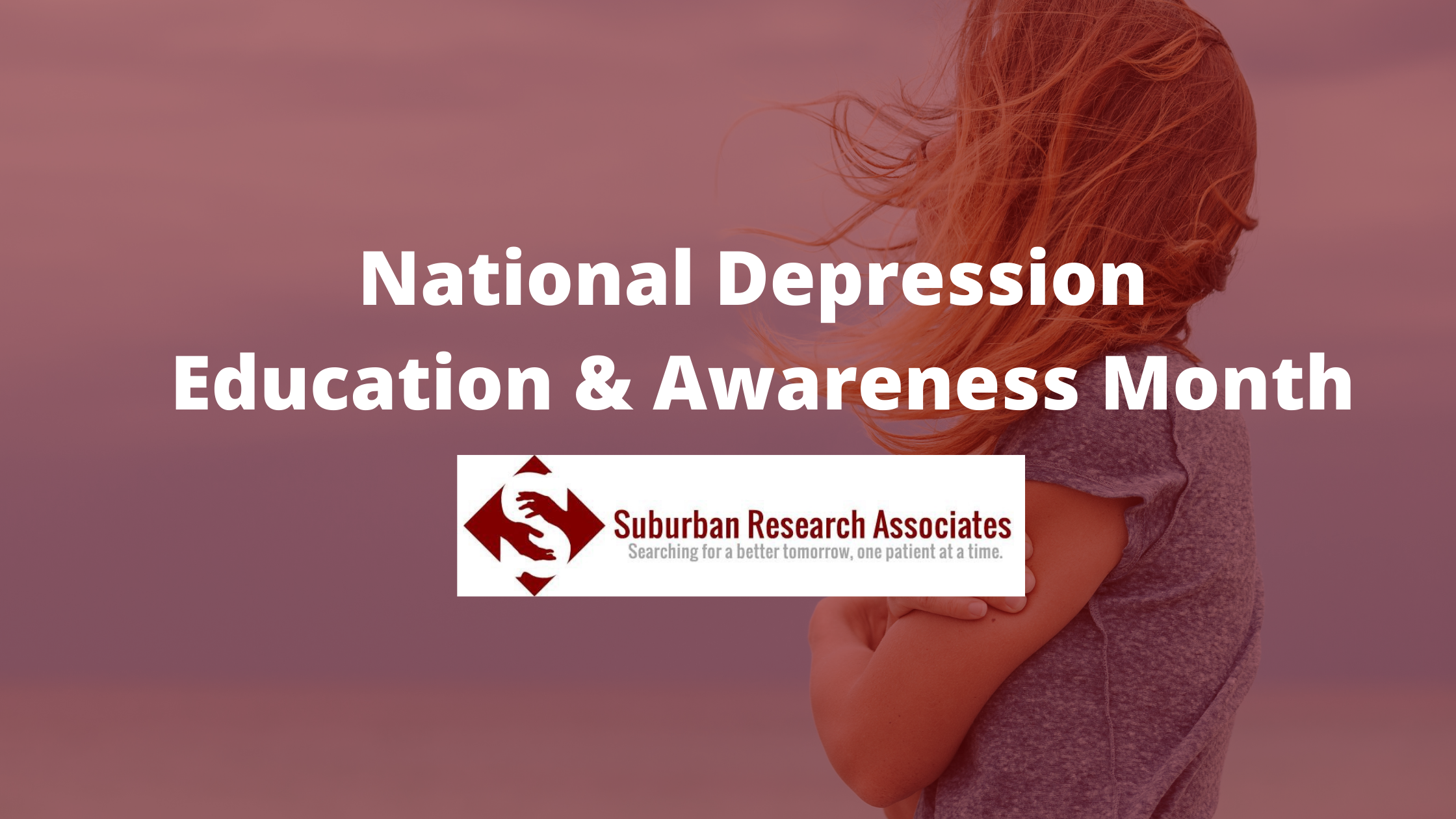October is National Depression Education and Awareness Month. If you have been following our blogs and social media post, spreading awareness and education on depression is a common topic. You may have even seen our post on Depression and Major Depressive Disorder. We wanted to dig even deeper into the education and awareness aspects of depression.
First thing’s first, while there are several risk factors for depression, no one is immune to it. Depression can affect anyone at any time, especially during significantly difficult times in one’s life. We want to make clear distinctions between the various types and forms of depression. Almost everyone has had moments of “feeling depressed”, such as after experiencing a loss or hardship, but not everyone develops clinical depression. All forms of depression are completely valid and if you have not struggled with clinical depression, chances are you know someone who has.
Feelings of Depression
We have all experienced this at some point in our lives. Something happens that makes us feel sad or down, but then as time passes, we get back up. That is major difference between general feelings of depression as opposed to clinical depression. With clinical depression, those depressed feelings often last for much longer and come with additional symptoms such as anxiety, fear, fatigue, and disinterest in life activities. Nonetheless, if you are experiencing any feelings of depression, those are feelings to pay attention to.
Major Depressive Disorder
The American Psychological Association defines Major Depressive Disorder (MDD) as the following: “A mood disorder characterized by persistent sadness and other symptoms of a major depressive episode but without accompanying episodes of mania or hypomania or mixed episodes of depressive and manic or hypomanic symptoms.”
Treatment Resistant Depression
As defined by a study published by Fava (2003), “Treatment resistant depression (TRD) typically refers to inadequate response to at least one antidepressant trial of adequate doses and duration.” In other words, TRD can occur when one has tried antidepressant treatments that have not been successful in relieving their depressive symptoms. TRD often comes with increased frustration from trying and failing treatment after treatment.
Symptoms of Depression
Regardless of which type of depression one may have, the symptoms are generally similar with a few discrepancies. The main discrepancy is how long the symptoms last. If you notice symptoms lasting longer than usual, be sure to seek care from your doctor or a mental health professional. Those with any form of depression may experience:
- Feeling down or blue
- Loss of interest in things the individual was once interested in
- Social withdraw or isolation
- Fatigue or exhaustion
- Frequent headaches
- Stomach aches
- Feelings of hopelessness or worthlessness
- Insomnia (not being able to sleep), or sleeping too much
Treatment/Help Options
Asking for help is never something to be ashamed of. As mentioned above, if you are feeling like it is taking a longer than usual to come out of a depressive episode, reach out to a doctor or mental health professional who can help you find the right treatment path and help for you. At Suburban Research Associates, we have Clinical Trials for Major Depressive Disorder, Major Depressive Disorder with Insomnia Symptoms, and Treatment-Resistant Depression. We know how frustrating it can be to struggle to find the right treatment. That is why we do what we do!
Never forget to put yourself first, whatever this may look like for you. If it is not answering a text, taking 5 minutes to do something you love, talking to a friend or family member, or just resting- do that!
If you are in crisis and need immediate support, know that someone is always there to listen. You can text “Home” to 741741 to be connected to a live crisis counselor at Crisis Text Line, or call The National Suicide Prevention Lifeline at 800-273-8255.
If you know someone who may be struggling:
There is a large chance you know someone who might be struggling with depression. Some impactful things you can do are:
- Check in on them, even if they do not reach out to you. Sometimes people are waiting for that check in, but will not ask for it.
- Listen non-judgmentally. The power of listening to someone who is struggling cannot be downplayed. Sometimes it just takes one person to just listen.
- Remove the labels and stigmas. In society, there are still stigmas surrounding depression and mental health. Be a place for people where that stigma does not exist and spread awareness about it. You do not have to be struggling yourself to make a difference.
- Offer Support with Seeking Help. Seeking help on your own can be scary and intimidating. Offering to help someone find resources or taking them to the first appointment can be really helpful.
Resources:


